- Home
- Joan Jonker
One Rainy Day
One Rainy Day Read online
Copyright © 2005 Joan Jonker
The right of Joan Jonker to be identified as the Author of the Work has been asserted by her in accordance with the Copyright, Designs and Patents Act 1988.
Apart from any use permitted under UK copyright law, this publication may only be reproduced, stored, or transmitted, in any form, or by any means, with prior permission in writing of the publishers or, in the case of reprographic production, in accordance with the terms of licences issued by the Copyright Licensing Agency.
First published as an Ebook by Headline Publishing Group in 2011
All characters in this publication are fictitious and any resemblance to real persons, living or dead, is purely coincidental.
Cataloguing in Publication Data is available from the British Library
eISBN : 9780755390731
HEADLINE PUBLISHING GROUP
An Hachette UK Company
338 Euston Road
London NW1 3BH
www.headline.co.uk
www.hachette.co.uk
Contents
Title Page
Copyright Page
About the Author
Also by Joan Jonker
Dedication
Chapter One
Chapter Two
Chapter Three
Chapter Four
Chapter Five
Chapter Six
Chapter Seven
Chapter Eight
Chapter Nine
Chapter Ten
Chapter Eleven
Chapter Twelve
Chapter Thirteen
Chapter Fourteen
Chapter Fifteen
Chapter Sixteen
Chapter Seventeen
Chapter Eighteen
Chapter Nineteen
Chapter Twenty
Chapter Twenty-One
Chapter Twenty-Two
Chapter Twenty-Three
Chapter Twenty-Four
Chapter Twenty-Five
Chapter Twenty-Six
Joan Jonker was born and bred in Liverpool. Her childhood was a time of love and laughter with her two sisters, a brother, a caring but gambling father and an indomitable mother who was always getting them out of scrapes. Then came the Second World War when she met and fell in love with her husband, Tony. For twenty-three years, Joan campaigned tirelessly on behalf of victims of violence, and it was during this time that she turned to writing fiction. Sadly, after a brave battle against illness, Joan died in February 2006. Her best-selling Liverpool sagas will continue to enthral readers throughout the world.
Joan Jonker’s previous novels, several of which feature the unforgettable duo Molly and Nellie, have won millions of adoring fans:
‘Wonderful … the characters are so real I feel I am there in Liverpool with them’ Athena Tooze, Brooklyn, New York
‘I enjoy your books for they bring back memories of my younger days’ Frances Hassett, Brixham, Devon
‘Thanks for all the good reads’ Phyllis Portock, Walsall
‘I love your books, Joan, they bring back such happy memories’ J. Mullett, Lancashire
‘I’m an ardent fan, Joan, an avid reader of your books. As an old Liverpudlian, I appreciate the humour. Thank you for so many happy hours’ Mrs L. Broomhead, Liverpool
Also by Joan Jonker
When One Door Closes
Man Of The House
Home Is Where The Heart Is
The Pride Of Polly Perkins
Sadie Was A Lady
Walking My Baby Back Home
Try A Little Tenderness
Stay As Sweet As You Are
Dream A Little Dream
Many A Tear Has To Fall
Taking A Chance On Love
Strolling With The One I Love
When Wishes Come True
The Girl From Number 22
One Rainy Day
Featuring Molly Bennett and Nellie McDonough
Stay In Your Own Back Yard
Last Tram To Lime Street
Sweet Rosie O'Grady
Down Our Street
After The Dance Is Over
The Sunshine Of Your Smile
Three Little Words
I'll Be Your Sweetheart
Non-fiction
Victims Of Violence
I am dedicating this book to my late mother and father, who were affectionately known as Marsie and Pop by the four children they raised with love, laughter and happiness.
My sisters, Edna and Elsie, my brother, Joseph, and I had a wonderful childhood and, thanks to the guidance of Marsie and Pop, we’ve gone on to have a wonderful life.
Hello friends
I hope all is well with you and yours.
I can’t wait to tell you what a treat there is in store for you with One Rainy Day. I have never enjoyed writing a book so much or been so sorry when I had to draw it to a close for I love the story and the wonderful characters, I just didn’t want to say goodbye. I know self-praise is no recommendation, but you should know by now I am not big-headed. I love this book and I know you will too.
Take care.
Love
Joan
PS – Just a little piece of useless information: I do not have a big garden, just a courtyard, and I have a gardener who keeps asking why I haven’t mentioned him in my books yet. He’s getting quite tetchy about it, so to keep him happy his name is Brian and he is a good gardener. That should stop him from pulling out my plants or cutting down my trees!
Chapter One
It was a pleasant morning when the young man parked his car in the reserved bay at Exchange Station. There was a nip in the air, though, as the wind blew in from across the Mersey, and after locking the car door he slipped the keys into his pocket and set off at a brisk rate towards Castle Street.
Many a female head turned in his direction, for he cut a fine figure: six foot two in height, well built, with jet-black hair and eyebrows, deep brown eyes and an attractive dimple in his chin. He oozed confidence, in his well-cut overcoat, soft kid gloves and handmade shoes of the finest leather. If he had known the thoughts running through the heads of people passing by, he would have been surprised, for since he had been born into one of the wealthiest families in Liverpool confidence came naturally to Andrew Wilkie-Brook, as did wearing clothes made by bespoke tailors, and shoes made by craftsmen.
However, Andrew’s mind was on none of these things as he reached the building that housed his father’s import and export business, for today was his twenty-fifth birthday and there was much to look forward to. His mother had planned a lavish dinner party for twenty friends from their social circle, and knowing how fussy his mother was about detail he was sure the party would be a huge success. But there was an engagement he was looking forward to far more than the party, and that was lunch with his father at the club. It was a business lunch, his father had said, that just happened to fall on his birthday. And Andrew was chuckling as he took the stone steps two at a time. He loved his father dearly, and respected him, for when he’d asked if he could leave university when he was twenty-one to join the family business his father had brushed aside his wife’s wailing over what their friends would say about their son’s taking up a lowly position in an office. He had agreed to Andrew’s joining the firm, as long as he was willing to accept the terms. That meant starting on the lowest rung of the ladder, so he could learn every aspect of the business from top to bottom. This had brought more tears and protests from his mother, but once again George Wilkie-Brook ignored her pleas. Instead he’d slapped his son on the back and wished him well. And because of his admiration and love for his father, Andrew had spent the last four years learning as much as he could about the business which had been in the family for almost eighty years. And as he
learned, his father rewarded him, each year, by promoting him to a higher position. To his mother’s dismay, he had cut down drastically on his social life for he was determined to fulfil the promises he’d made to his father. And now because of his diligence, Andrew had taken over the offices on the first floor of the building, and was responsible for the running of an important section of the business. With the help of his own private secretary, a typist and a clerk, his department ran like clockwork, and he had reason to be proud of his success.
So he was in high spirits when he climbed the stairs and knocked on his secretary’s door. ‘Good morning, Mrs Stamford. I hope you are well this fine day?’
Wendy Stamford looked up from the pile of correspondence in front of her and smiled. ‘Good morning, Mr Andrew. And may I wish you a very happy birthday.’
‘Thank you. I’m meeting my father at the club for lunch, so I’ll have to look sharp.’
‘I’ve been through the post, Mr Andrew, and I’ve sorted the letters in order of priority, so we should finish in plenty of time. I’ll bring it in to you, then while you’re looking through I’ll make you a nice cup of tea.’
‘That’s very kind of you, Mrs Stamford, and reminds me why you are such a very good secretary.’
‘Flattery will get you an arrowroot biscuit to have with your tea.’ Wendy was very fond of her boss, for he was easy to get along with, very friendly, and not at all snobby. And he had a sense of humour. ‘In fact, seeing as it’s your birthday, I’ll make that two biscuits.’
‘I know this sounds forward of me, Mrs Stamford, but seeing as it is my birthday, could the biscuits and tea be stretched to include Miss Kennedy and Miss Williams? I would feel mean leaving them out. They have worked well for me over the past few years, and I’d like to show my appreciation.’ Andrew hung his coat on the coat stand in his office, then turned a bashful face to his secretary. ‘Tea and biscuits don’t sound very appreciative, do they? It makes me sound like Scrooge.’ He took a wallet from his inside pocket and removed a white five-pound note. ‘Would Miss Kennedy go on an errand, d’you think? I’m having lunch with Father, who has a palate for good food and wine. And I wouldn’t enjoy my meal, knowing my faithful staff were having a measly biscuit.’ He handed her the five-pound note. ‘Ask Miss Kennedy if she would go to Cooper’s and order a selection of sandwiches and cakes to be delivered here at one o’clock. I would expect no change, so there should be sufficient to include the staff downstairs. If you turn two desks into a table, you could enjoy a nice, friendly lunch.’ He looked quite boyish when he grinned. ‘And my conscience will be clear.’
‘You really don’t need to do that, Mr Andrew, but I’m not going to talk you out of it, because I know the staff would be delighted to celebrate your birthday.’ Wendy carried the post into his office and placed it, neatly stacked, on top of his desk in front of his brown leather swivel chair. ‘I’ll see Miss Kennedy and Miss Williams, and tell them that as soon as one of them has ten minutes to spare, she’s to go to Cooper’s with the order. Then I’ll make our tea and we can get down to business.’
Before Andrew had joined the family firm, Wendy had been working as private secretary to George Wilkie-Brook for twelve years. Then, because of her knowledge and experience, Mr George had asked if she would do him a great favour and allow him to transfer her to his son’s new offices, so she could help Andrew find his feet. And she had never regretted agreeing. She knew the job inside out, and was proud at how quickly Andrew had taken in everything she’d been able to teach him. She was forty years of age now, but didn’t look it, with a trim figure, mousy-coloured curly hair, a good dress sense and a face that liked to smile. It was twenty years since she’d married her boyfriend, Stan, and they were as much in love now as they had been on their wedding day. The only disappointment in their lives was that they hadn’t been blessed with children. They were both eager for a baby, but as the years passed they had gradually given up hope. As Wendy said, it was God’s will, and there was little they could do about it. She certainly wasn’t going to become twisted and bitter. They had each other, so they were lucky.
Andrew raised his eyes from the letter he was reading when his secretary came through the door carrying a tray with two cups of tea on, a huge smile on her face. ‘Mr Andrew, your generosity has been very well received by Miss Williams and Miss Kennedy. I could say they were delighted, but that would be an understatement. I think a better word to describe the expression on their faces is delirious.’ Wendy placed a cup and saucer beside him, a safe distance from the correspondence in case of an accident. ‘I don’t think they would like me to repeat this, so don’t let the cat out of the bag for they would be embarrassed. Miss Williams said you are now next to Cary Grant on her list of favourite men, and Miss Kennedy has you second to Randolph Scott.’
Andrew chortled. ‘Oh, I say, compliments like that are likely to give me a big head.’ With a huge grin on his face which made him look a lot younger than his twenty-five years, he looked across the desk. ‘Well, come on, Mrs Stamford, who am I next to on your list of favourite film stars?’
‘I’m too old for that, Mr Andrew. I’m past the swooning stage. And unless we keep our mind on the work ahead of us, you’re going to be late for your meeting with Mr George.’
Andrew squared his shoulders and picked up the letter on top of the pile. ‘Quite right, too! How lucky I am to have a conscientious secretary who keeps my shoulder to the wheel. Off we go, and there’ll be no break now until we’ve finished. So, pencil poised, and I’ll dictate to your speed.’
For the next half-hour, there was silence in the room except for Andrew’s voice, and the occasional rustle as his secretary turned over a page on her notebook. They were halfway through the letters when the phone rang in Wendy’s next-door office, and Andrew tutted in exasperation. ‘Get rid of them quickly, Mrs Stamford. If it’s me they’re after, tell them I’ve slipped out of the office on business.’
With her notebook gripped in her hand, Wendy left the office, only to be back within a few seconds. ‘It’s your mother, Mr Andrew, and she said it’s important. If you pick your phone up, I’ll replace mine and stay in my office until you call me.’
Andrew’s eyes went to the ceiling. He did wish his mother wouldn’t ring him at the office so often. He wouldn’t mind if there was a reason for her calls, but mostly she rang out of boredom. But she shouldn’t be bored today, not when there was so much to organize for the dinner party. He took a deep breath before lifting the receiver. ‘Yes, Mother, did you wish to speak to me?’
Harriet Wilkie-Brook had a very cultured voice. Born into a wealthy family, and married to a wealthy husband, she knew very little about what went on in the world. She was, in fact, remote from reality – which would have been apparent to anyone if they’d been in a position to hear the conversation between mother and son. ‘It’s about the flowers, darling. The order arrived half an hour ago, and they really are lovely. But I’m a little concerned that I may have under-ordered. Perhaps you could ring the florist for me, and ask them to send a further two dozen roses. A mixture of pink and deep red.’
Andrew forced himself to take a deep breath before saying, ‘Mother, I am in the middle of dictating to Mrs Stamford, and I really don’t have the time. Could Charlotte not ring the shop for you?’ Charlotte was his nineteen-year-old sister, who had never worked a day in her life, and was spoiled by both parents. ‘I’m sure she’s capable of ordering flowers over the telephone.’
‘This is a very busy day for Charlotte.’ Harriet Wilkie-Brook’s tone said she was not best pleased. She wasn’t used to refusals. ‘This is very thoughtless of you, Andrew. You should understand that your sister had, and still has, many things to do. This morning she had an appointment at the hairdresser’s, then a fitting for shoes, next a visit to the manicurist’s to have her nails cut and polished. Right now she is in town with one of her friends, picking up the dress she’s had made for the party tonight.’ Then Andrew’s mother beca
me exasperated at having to make excuses. ‘This is most unkind of you, Andrew, and it is no way to talk to your mother. I’m sure your father will be horrified when I tell him you refused to do me a tiny favour.’
‘Father understands that I am very busy this morning, Mother, because I have to get through a day’s work in half a day. You see, I’m meeting him for lunch at the club. It’s a business lunch. I’ll tell him you phoned, and about your request. And I’ll explain that as I was inundated with work I asked my secretary to ring the florists and order the two dozen roses you requested for tonight. Now, as your mind should be at rest, am I allowed to return to the many letters that need my attention?’
There was silence for a few seconds, then in a coaxing voice Harriet said, ‘There is one little thing, my darling, but I’m quite sure it will meet with your approval. Annabel was on the telephone earlier, and I promised her you would pick her up in your car at seven fifteen.’
Andrew’s brows were drawn together in puzzlement. ‘But I was under the impression Mr and Mrs Barford had accepted the invitation to the party?’
‘Yes, of course they have. They have never turned down an invitation to one of our dinners. Actually they were the first to reply.’
‘Then surely Annabel can accompany them in their car? She always has before, and I would have thought it was obvious that she should do so now! It would be ridiculous for the parents to arrive in their car, then their daughter to arrive in another.’
‘The poor girl would be so disappointed if you refused, Andrew. She was delighted when I said I would ask, for she really is very fond of you. And she is such a sweet thing, so pretty and very charming.’
‘Mother, under no circumstances will I pick Annabel up, and I’m surprised at your even suggesting it. She is pretty, and charming, as you say, but she is also only nineteen years of age. And a very young nineteen at that. Her parents treat her like a child, and they’ve never allowed her to grow up, which I find very sad. For while she is always happy and pleasant, she is very innocent. Her conversation goes no further than clothes, perfume, and nights at the theatre. I know you had hopes for Annabel and me, and perhaps I should have spoken sooner, but it would never work, Mother, so would you please not give her any encouragement. I like her as a friend, I am fond of her as a friend, but it ends there.’

 MB09 - You Stole My Heart Away
MB09 - You Stole My Heart Away MB08 - I’ll Be Your Sweetheart
MB08 - I’ll Be Your Sweetheart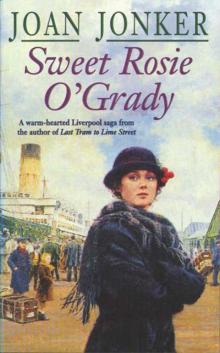 MB03 - Sweet Rosie O’Grady
MB03 - Sweet Rosie O’Grady Strolling With The One I Love
Strolling With The One I Love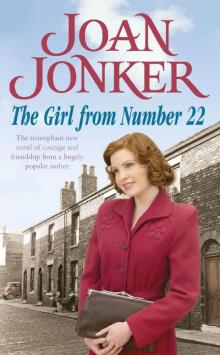 The Girl From Number 22
The Girl From Number 22 Dream a Little Dream
Dream a Little Dream Try a Little Tenderness
Try a Little Tenderness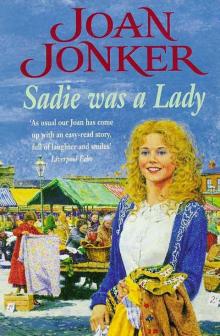 Sadie Was A Lady
Sadie Was A Lady MB01 - Stay In Your Own Back Yard
MB01 - Stay In Your Own Back Yard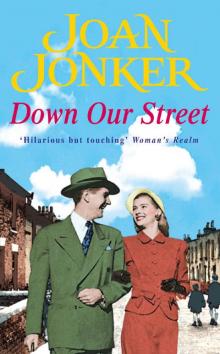 MB04 - Down Our Street
MB04 - Down Our Street Walking My Baby Back Home
Walking My Baby Back Home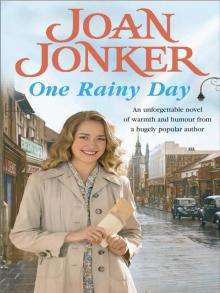 One Rainy Day
One Rainy Day MB07 - Three Little Words
MB07 - Three Little Words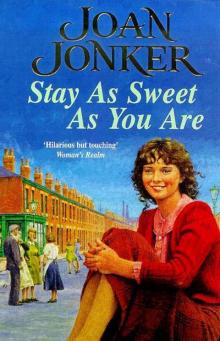 Stay as Sweet as You Are
Stay as Sweet as You Are Taking a Chance on Love
Taking a Chance on Love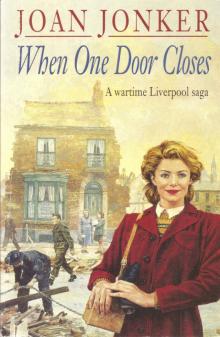 EG01 - When One Door Closes
EG01 - When One Door Closes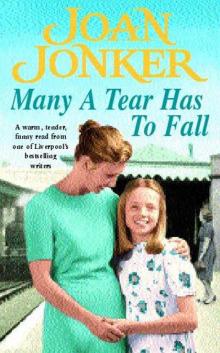 Many a Tear has to Fall
Many a Tear has to Fall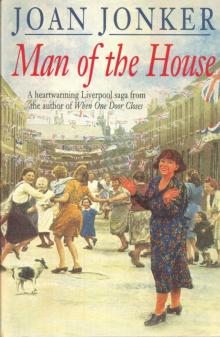 EG02 - Man of the House
EG02 - Man of the House MB02 - Last Tram To Lime Street
MB02 - Last Tram To Lime Street The Pride of Polly Perkins
The Pride of Polly Perkins EG03 - Home Is Where The Heart Is
EG03 - Home Is Where The Heart Is MB05 - After the Dance is Over
MB05 - After the Dance is Over